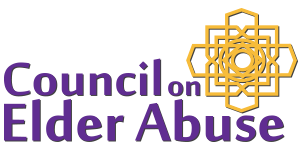What is Elder Abuse?
Elder abuse takes many forms, and is not always immediately apparent. Types of abuse include:
Physical: The use of force against an elderly person that results in physical pain, injury, or impairment. This includes inappropriate use of drugs, restraints, or confinement.
Emotional: People speak to or treat elderly persons in ways that cause emotional pain or distress. This can be verbal, through yelling or threats, or nonverbal, through ignorance and isolation.
Sexual: Contact with an elderly person without the elder’s consent. This can involve physical sex acts, but activities such as showing an elderly person pornographic material, forcing the person to watch sex acts, forcing the elder to undress, or inappropriate touching during routine care.
Neglect: Failure to fulfill a caretaking obligation can be intentional or unintentional, based on factors such as ignorance or denial that an elderly charge needs as much care as he or she does.
Financial: This involves unauthorized use of an elderly person’s funds or property, either by a caregiver, or an outside scam artist.
Where does elder abuse take place?
Elder abuse tends to take place where the senior lives, most often in the home. Abusers can be adult children, other family members such as grandchildren, nieces, or nephews, or spouses/partners of elders. Institutional settings, including long-term care facilities can also be sources of elder abuse.
Signs and Symptoms
At first, you might not recognize or take seriously signs of elder abuse. They may appear to be symptoms of dementia or signs of the elderly person’s frailty; or caregivers may explain them to you in that way. In fact, many of the signs and symptoms of elder abuse do overlap with symptoms associated with aging, but that doesn’t mean you should dismiss them.
Physical Signs:
- Unexplained or suspicious injuries/pain
- Cuts, puncture wounds, bruises, burns
- Dehydration or malnutrition
- Poor color, sunken eyes or cheeks
- Frequent use of hospital
- Frequent changes in doctors
Behavioral Signs:
- Fear, hesitation to talk openly
- Anxiety, agitation
- Isolation, withdrawal
- Change in normal activities
- Non-responsiveness Confusion, disorientation
Environmental Signs:
- Lack of heat, water, electric
- Extreme filth and clutter
- Strong odors, poor hygiene, soiled clothing
- No food and/or spoiled food
- Unsafe living space
Financial Signs:
- Significant withdrawals from accounts
- Sudden changes in financial condition
- Items or cash missing from household
- Suspicious changes in wills, power of attorney, titles, and policies
- Unpaid bills or lack of medical care, although the elder has enough money to pay for them
- Unnecessary services, goods, subscriptions
If you Suspect Abuse, TAKE ACTION!
More than 1,500 cases of elder abuse are reported each year in Erie County. Many more cases are never reported.
If you suspect abuse and would like legal assistance, please contact:
Legal Services for the Elderly, Disabled, or Disadvantaged of WNY: 716-853-3087
For immediate assistance 24 hours a day, call Crisis Services Hotline at: 716-834-3131
If you suspect someone is being abused, call Erie County Protective Services for Adults: 716-858-6877
For general information on programs or referrals call: 716-858-8526
In an emergency, call 911
What Is Elder Abuse?
